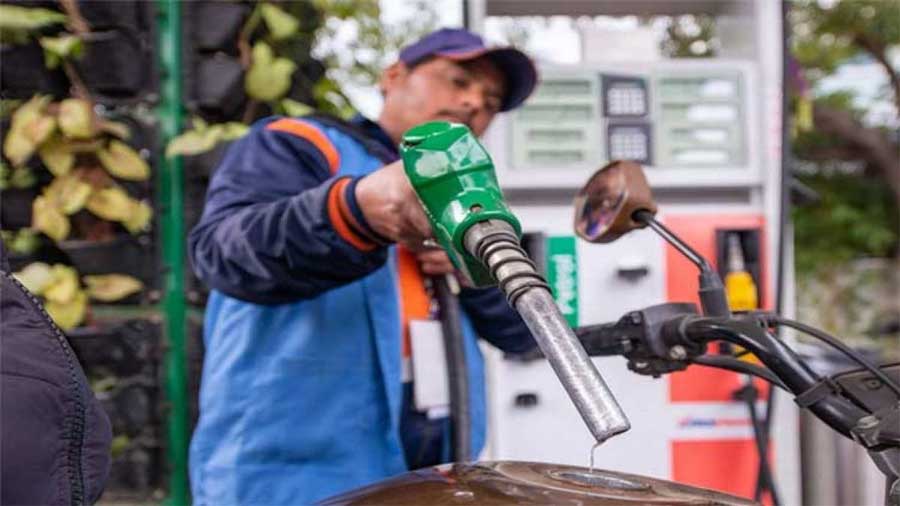KARACHI: The foreign exchange reserves of the country increased by $1,117.50 million (+4.8 percent) to $24,414.9 million by the week ended July 2, 2021, State Bank of Pakistan (SBP) said on Thursday.
The foreign exchange reserves of the country were $23,297.4 million by the week ended June 25, 2021, the central bank said.
According to the SBP, it received $1 billion as government of Pakistan’s loan disbursement from China and $440 million from the World Bank. After accounting for external debt repayments and other official payments, the SBP reserves increased by $1,111.7 million to $17,231.1 million. The foreign exchange reserves held by the central bank were $16,119.4 million on June 25.
Likewise, foreign exchange reserves held by commercial banks increased by $5.80 million (+o.08 percent) to $7,183.5 million by the week ended July 02, 2021 as compared with $7,178 million a week ago.
According to SBP data, the highest ever foreign exchange reserves, earlier, were recorded at $23,098.5 million in the fiscal year 2015-16.
It is important to note that remittances being sent by overseas Pakistani workers increased by 34 percent in May, giving a much-needed boost to the government’s hope to collect up to $29 billion by the end of the current fiscal year. The country received $26.736 billion during the first 11 months (July-May) of the recently concluded fiscal year 2020-21, an increase of 29 percent or $6.077bn.
According to State Bank’s data, Pakistan received $2.49 billion in May, compared to $1.865 billion received during the same month of last fiscal year (FY20), an increase of $625 million or 34 percent.
Pakistan borrowed $2.5 billion through Eurobonds on March 30, 2021 by offering lucrative interest rates to lenders aimed at building the foreign exchange reserves.
Meanwhile, the State Bank of Pakistan (SBP) has warned the general public and persons engaged in sale, purchase and transfer of foreign currency through Hawala/Hundi.
The SBP said that people may unknowingly become part of money laundering and terrorism financing offence by dealing with illegal foreign exchange operators.
The money laundering and terrorism financing offences are punishable under Anti-Money Laundering (AML) Act, 2010 and Anti-Terrorism Act (ATA) 1997.
The business of foreign exchange in Pakistan is regulated under Foreign Exchange Regulation Act (FERA) 1947. The SBP issues authorization to banks and exchange companies to conduct foreign exchange business.
“Any person (individual or entity) other than those authorized by the SBP are doing illegal foreign exchange business which is a punishable offence under FERA 1947 and AMLA 2010. All such operators are informed in their own interest not to indulge in illegal foreign exchange sale/purchase and hawala/hundi business.”
Extensive action against illegal currency exchange and Hawala/Hundi Operators is being carried out by relevant law enforcement agencies.
The SBP also advised the general public to carry foreign exchange sale, purchase and remittance transactions with only SBP authorised banks and exchange companies.
“Do not forget to collect the system generated official receipt of your transactions. If you come across any illegal foreign exchange sale/purchase and Hawala/Hundi Operators, send their details to the FIA,” the SBP added.
Meanwhile, The State Bank of Pakistan (SBP) has conducted stress tests of all the three tiers (small, medium and large) banks and identified that small banks are found to be the least resilient against macroeconomic risks.
According to the SBP, in line with the system-level credit risk analysis, infection ratios of banking segments (small, medium and large sized banks) have also been projected.
This aspect of the banking industry is included to assess how cross-sectional heterogeneity affects the resilience of banks against various macroeconomic risks.
The resilience of the small-sized banks segment, however, starts waning towards the end of the simulation period under stress – CAR breaching the minimum standard by a narrow margin. These banks however have quite contained systemic implications due to their limited market share.
Small banks – constituting 4.18 percent of the banking system – are found to be the least resilient against both scenarios. From its existing level of 18.72 percent, the loan delinquency rate of small banks decreases by 46 bps in S0, whereas it rises by 530 bps under S1, by the end of the three-year horizon. This is the highest level of infections in any segment of banks under stress scenario.
Given their comparatively lower lending exposure, the CAR of small banks rise by 30 bps in S0 and falls by 326 bps under S1 from the prevailing 14.39 percent
While maintaining resilience under the baseline, the small sized banks on aggregate basis may breach the domestic regulatory CAR standard towards the end of projection horizon under stress scenario. This is mainly due to the lowest level of pre-shock CAR among all categories.
Small banks thus demonstrate the least resilience in terms of maintaining compliance with domestic minimum capital requirements.
Overall, under the baseline scenario, the solvency of the banking sector portrays an encouraging picture with the delinquency ratio mostly hovering around the current level (9.19 percent) while capital adequacy staying well above the domestic regulatory benchmark. Under the hypothetical stress scenario as well, the banking sector should be able to withstand a severe and protracted downturn induced by adverse global and domestic macroeconomic conditions, including the COVID-19 pandemic.
In terms of size, the medium and large segments can withstand the stress conditions as well. Reassuringly, the large size banks, with the potential to cause systemic disruptions, carry sufficiently higher capital buffers and are thus able to sustain the impact of hypothesized shocks for three years. Also, the medium-sized banks never breach the solvency criteria during the projection horizon. – TLTP
Foreign reserves increase $1,117.5mn to $24.415bn
Sign in
Welcome! Log into your account
Forgot your password? Get help
Password recovery
Recover your password
A password will be e-mailed to you.






